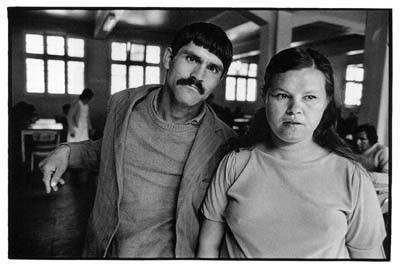Operational whitewash and negative communities

Williams, Gareth. The Other Side of the Popular: Neoliberalism and Subalternity in Latin America. “Chapter 7: Operational Whitewash and the Negative Community”. Pp. 273-304. Durham: Duke University Press, 2002.
In Latin America, nationalist projects have been based on the establishment of normative identities and communities that indicate their limits in opposition to non-normative identities. Hegemony, thus, constitutes at the same time the grounds for subalternity (6). Subalternity is understood by Williams as "the often violent subject effect of national and post-national processes of social subordination, but also as the epistemological limit at which the nonhegemonic announces the limits of hegemonic thought and of hegemonic thinking". (10) Williams is looking for sites at the limits of current operations of whitewashing of both the relations between past and present violence and of heterogeneities collapsed under the idea of the national (such as the "chola" identity). But subalternity is not a project per se, least a romanticized project, as it can be performed (as in the case of ethnic tourism) within the narrative of neoliberalism to continue to assert colonial superiority and global market inequalities.
Williams notes that Moulian's Chile Actual gestures towards a residual affective world that can not find itself representable in the clean, transparent surface of the Chilean post-dictatorship national narrative (epitomized by the 1992 iceberg) and thus unsettles the image of a smooth transition (or of a transition at all for that matter). Now, the operational whitewash is not specific to Chilean transition (the suppression of historical relations between past and present), but is part of the strategic penetration of transnational market forces. Aligned with Nelly Richard and with Brett Levinson, William argues that there is "an affective world of signification that remains senseless (for democratic hegemony), and ungraspable for the order of disciplinary reason and for institutional knowledge as a whole" (286), "a world of residual affects that has been included into democracy as democracy's zone of (necessary) exclusion." (288) This world rather than becoming a community itself, points at the impossibility of any project of community based in equivalence and rationality. The implications of this would be to think of a notion of the social not grounded in complete and discrete identities but rather in "intimacy's and communion's dispersed and scattered interruptions, fissures, fragments and residues". (301)


Comments
Post a Comment